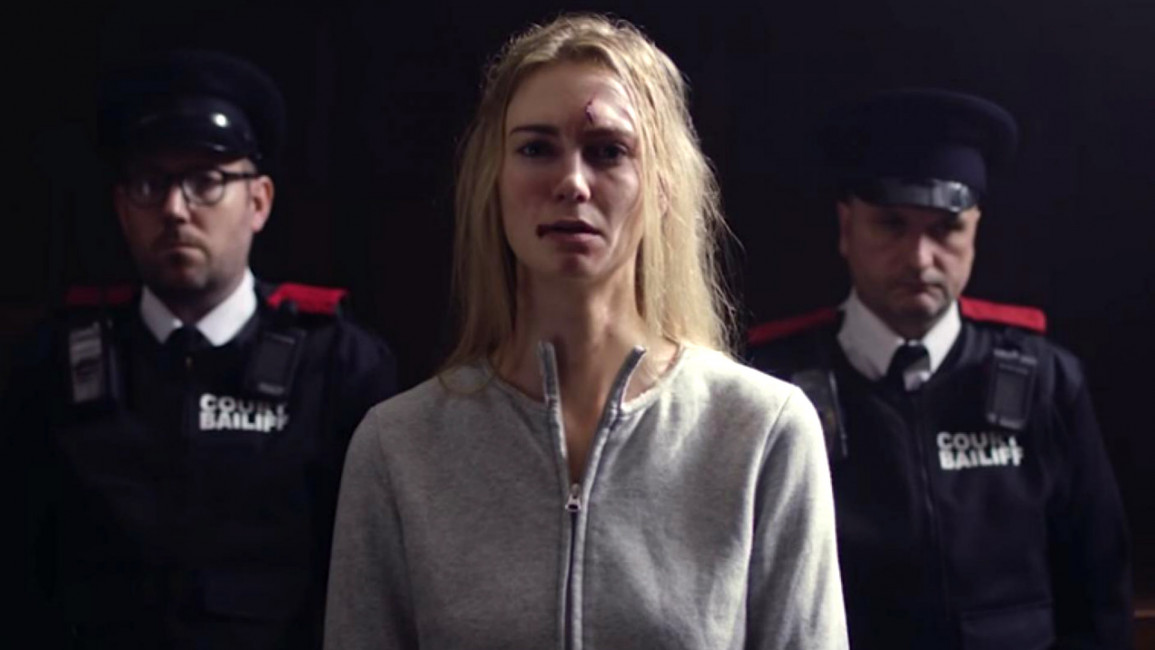UAE 'abusing, denying treatment' to terminally ill female detainee
Emirati authorities are denying a terminally ill cancer patient treatment and denying her regular contact with her family, Human Rights Watch (HRW) said on Tuesday.
Alia Abdel Nour, convicted on charges under terrorism laws in 2017, has her hands and feet shackled to a hospital bed day and night, family members said.
Prison guards allegedly told relatives in 2018 the chains would only be removed upon death.
Emirati security forces claim Abdel Nour is refusing the chemotherapy doctors ordered for her two years ago, but relatives say she was forced to sign a document stating she was refusing treatment. Doctors say she has only a few months to live.
Abdel Nour has also been denied regular visits, sometimes going without seeing family members for more than a month. Emirati law requires family members of prisoners with terminal illnesses be given unimpeded access for visitations.
"The cruel and senseless suffering Abdel Nour and her family have been subjected to blows the UAE's rhetoric around tolerance right out of the water," said Sarah Leah Whitson, Middle East and North Africa director of HRW.
"Abdel Nour should be allowed to spend her last days watched over by her family, not by prison guards who keep her shackled to a hospital bed."
Criminal proceedings against Abdel Nour were "married with due process violations", according to HRW. Arrested in July 2015, she was allegedly taken to a secret detention facility where she was held in a cold, dark room without windows or proper ventilation.
Security authorities denied her a mattress or blanket for more than two weeks, and she was forbade to sleep or pray, Abdel Nour told family members. She also claimed she was kept blindfolded while in solitary confinement for four months and denied regular access to the bathroom and contact with her family.
A month into her detention, Abdel Nour was diagnosed with breast cancer. Despite the diagnosis, security forces interrogated her while blindfolded and shackled, and threatened to torture her and her family, according to her relatives who say she was forced to sign a confession she could not read.
Abdel Nour was not informed of her charges until more than two years after her arrest, El Etihad reported. She was accused of financing terrorist groups and running websites which published news and information about al-Qaeda.
Her family members believe the charges are false but connected with small donations Abdel Nour made to Syrian families following the 2011 revolution.
Despite hunger strikes by Abdel Nour against her lack of access to medical treatment and protests by her lawyer against the charges, she was not moved to a hospital until November 2016.
Relatives of Abdel Nour have pleaded for a compassionate release on health grounds, which is permitted under Emirati law, but their requests have been denied without explanation.
The London-based International Campaign for Freedom in the United Arab Emirats (ICFUAE) released 'Alison', a short film based on Abdel Nour's case, in February.
|
|
In the film, Abdel Nour is transformed into Alison, a white British woman who is charged with funding terrorism after raising money for Syrian refugees.
"While heart wrenching, Abdel Nour's case is not unique," Whitson said. The UAE has been repeatedly accused by HRW and other human rights organisations of the torture and ill-treatment of detainees, and "serious violations" of due process in security-related cases.
British academic Matthew Hedges, who was jailed for months last year in the UAE after being accused of spying, alleges he was also forced to sign a confession.
"UAE leaders should divert their efforts from public relations campaigns to actually eradicating abuse and instituting the rule of law," said Whiston.



